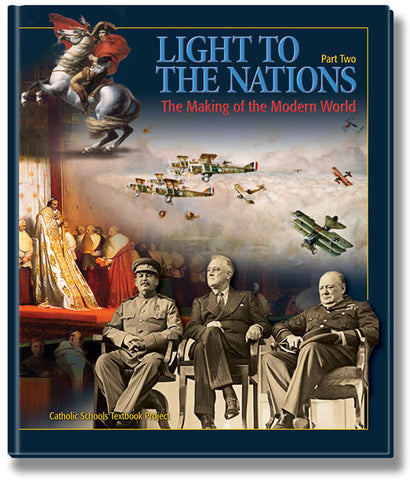The next day, July 30, Great Britain presented a peace plan to Austria-Hungary. According to the plan, Austria- Hungary would call a cease-fire but would occupy Belgrade and other Serbian towns while peace talks went on. Chancellor Bethmann-Hollweg of Germany sent a message to Berchtold, urging him to accept the British plan. If Austria-Hungary refused the plan, said the German chancellor, the "result would be uncommonly serious for Austria and ourselves." Later the same day, Kaiser Wilhelm also sent a message, urging Austria-Hungary to accept the British plan.
 |
| Kaiser Wilhelm II |
Yet, the very same day that Bethmann-Hollweg had urged him to open talks with Russia, Berchtold received a telegram from Moltke, urging him to order a mobilization of the Austro-Hungarian army against Russia. That night, Moltke met with the kaiser and was at last able to convince him that Russia's mobilization was a true threat to Germany. Reluctantly, Wilhelm agreed to send the tsar an ultimatum -- that if Russia did not call off its mobilization in 12 hours, Germany would be forced to declare war. The next day, July 31, the German government sent a note to the French government, demanding that it declare itself neutral in a war between Germany and Russia. France was given 18 hours to respond.
Germany might have had some hope that Russia would call off her mobilization, but there was little hope that France would abandon her ally, Russia, in the event of a war. In the end, neither Russia nor France agreed to Germany's demands. Tsar Nikolai simply refused to reply to Germany's note; and so on August 1, Germany declared war on Russia. The same day, France said that she "would consult her own interests," and began mobilizing her army against Germany. Two days later, Germany declared war on France.
A war with both France and Russia posed great dangers for Germany, for she would have to fight armies on two fronts at once. Russia's army, moreover, was far larger than Germany's. To defeat these enemies, the German high command decided it had to rely on the swiftness of Germany's army -- for, the German generals thought, it would take some time for Russia's armies to fully mobilize.
 |
| Map of Europe in 1914 |
Moltke and his generals had come up with this plan: while Russia's armies were mobilizing, the German army would invade France, swiftly defeat the French army in a six-week campaign, and then turn and fight the Russians. To invade France with the necessary speed, German forces could not cross directly into France over her common border with Germany, for that part of France was well defended both by the Vosges Mountains and French military emplacements. Instead, the Germans would pass through Belgium and across the less fortified plains of northwestern France.
By deciding to invade Belgium, Germany was playing a dangerous game. Though the British government had warned Germany not to attack the French coasts or French shipping, most Englishmen were opposed to entering the continental war. An invasion of Belgium might change public opinion and bring Great Britain into the war against Germany. The German high command, however, thought the only way to save Germany would be to knock out the French quickly, and this meant an invasion of Belgium.
 |
| German soldiers on the field, August 7, 1914 |
On August 2, therefore, the German army occupied the independent and neutral Grand Duchy of Luxembourg and sent an ultimatum to Belgium -- the Belgian government had to allow German armies to cross Belgian territory or face an occupation. The Belgian government proudly refused to surrender its sovereignty to Germany and appealed to Great Britain for protection. When the German army began crossing the Belgian border, Great Britain made her decision. At midnight of August 4, 1914, Great Britain declared war on Germany.
 |
| French bayonet charge |
Great Britain was not the last European country to enter the war in 1914. On August 7, Montenegro joined Serbia against Austria-Hungary, while the Ottoman Empire (hoping to regain lands in the Balkans) signed a secret treaty with Germany and Austria-Hungary. Germany and Austria's ally, Italy, however, declared herself neutral; the Italian government said the war was not a defensive one, and Italy was bound to aid her allies only in a defensive war....
Thus the war between Austria-Hungary and Serbia turned into a European-wide conflict. On the one side were the Central Powers (so called because they held Central Europe): Germany, Austria-Hungary, and their allies. On the other were the Entente or Allied Powers: Great Britain, Russia, France, Serbia, and their allies. Europe had never known a war like the one she was now entering; indeed, the world had never known so destructive a war as this war would become.
 |
The clash of the Central and Entente powers in what became known as the Great War would destroy what remained of Europe's ancient regime, as well as its civilization. Moreover, it would change the face of the world forever. |
The 20th century witnessed a good deal of experimentation in music. This piece by the Austrian composer, Anton von Webern --Sonata for Cello and Piano (1914) -- is an example of the new direction music was taking by the beginning of the First World War.
 The DVD "Restless Heart: The Confessions of St. Augustine"
The DVD "Restless Heart: The Confessions of St. Augustine" 












